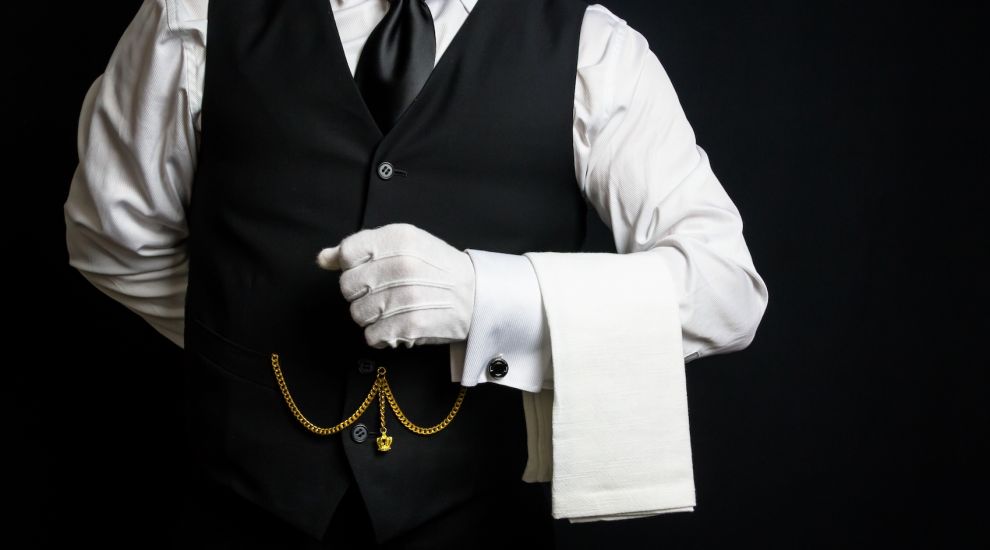


A former WWI soldier and butler who falsely accused his employer of bigamy—only to later be jailed for committing the same crime himself—is one of the fascinating figures to emerge from a series of recently declassified historical records that have just been opened to the public…
The documents, released this week by Jersey Heritage, offer a glimpse into island life during the 1920s and post-WWII era.
For legal reasons, many of the documents held by the Jersey Archive are ‘closed’ for a set period – which means the public can’t read them.
The number of years depends upon what’s in the documents and who wrote them. But, as soon as the date expires, Jersey Archive makes them public.
The records released so far this year by Jersey Archive date from the year 1924 – a year in which Ramsay MacDonald became the first Labour Prime Minister and King George V gave his first public broadcast at the opening of the British Empire Exhibition.
In Jersey, the States Assembly discussed a bill on the optional use of English in the States and approved a proposition to allow women to become politicians.
According to Linda Romeril, Jersey Heritage’s Director of Archives and Collections, the newly declassified records “include both stories of individuals and of wider social policies and attitudes in the inter-war and post-Occupation periods". Here's a flavour of what they revealed...
One such individual with an interesting story from 1924 was Thomas Baignet, a butler who was sentenced to four months in prison 100 years ago for committing libel (a published false statement that is damaging to a person's reputation).
Born in Surrey, the 53-year-old had served in both the Boer War and the Great War before finding work as a butler in Jersey with Sir William and Lady Alice Byrne.
After being dismissed from the household, Thomas accused Lady Alice of bigamy — falsely alleging that her third marriage to Sir William was invalid under Roman Catholic law.
His accusations were based on a letter he had stolen that stated the Catholic Church did not recognise divorce.What Thomas failed to grasp was that the Church’s position on divorce did not equate to English legal standards.
Thomas circulated the story of bigamy to a number of the other servants, including the household chauffeur, whose witness statement revealed later that Thomas had threatened to "put Lady Byrne through it for bigamy".
The court proceedings revealed that Lady Byrne had indeed been married three times – but entirely legally. She had divorced her first husband Alexander Trimmer in 1897, while her second husband Donald Maclennin had died in 1917, two years before her marriage to Sir William.
In court, it was revealed that Thomas had a prior conviction for fraud, and, in a twist of irony, he had previously been imprisoned for committing bigamy himself.
This story of false accusations and misunderstandings is just one of many uncovered by the Jersey Archive as part of their annual release of historical records.
Another case that came before the Criminal Courts in February 1924 shows the changing nature of punishment for young offenders over the past 100 years.
Court records show that five teenagers, aged 16 to 18, were convicted of stealing zinc from the property of Sir Jesse Boot, founder of Boots the Chemist.
Three of the boys received three months of hard labor and 12 strokes of the birch—six upon entering prison and six upon release.

Pictured: Birching record. (Jersey Heritage)
Another boy, Leon Veron, was spared prison due to a good character reference from his schoolteachers but was still subjected to eight strokes of the birch — a type of punishment that was abolished in Jersey in the late 1970s.
The youngest offender, Charles Samuel, received a two-week jail sentence and 10 strokes of the birch.
In his summing up of the case, the Bailiff said: “It is sad to see children of this age in St Helier become vagabonds. It showed there was something wrong with our Education system. It was inconceivable that children should be able at such an age to become criminals.”
For those keen to learn more, Jersey Heritage will host a free talk on these records on Saturday 18 January at 10:00.
Comments
Comments on this story express the views of the commentator only, not Bailiwick Publishing. We are unable to guarantee the accuracy of any of those comments.